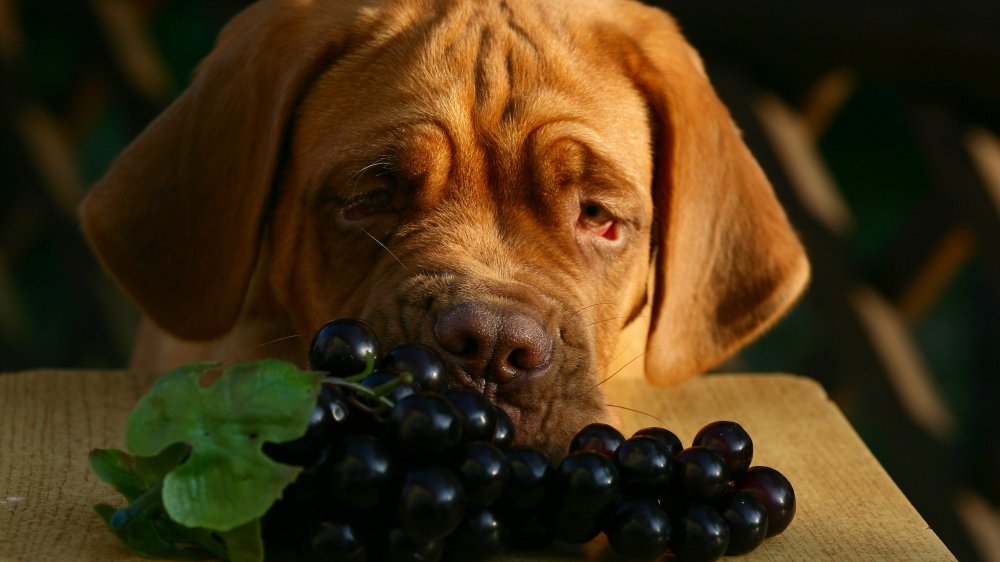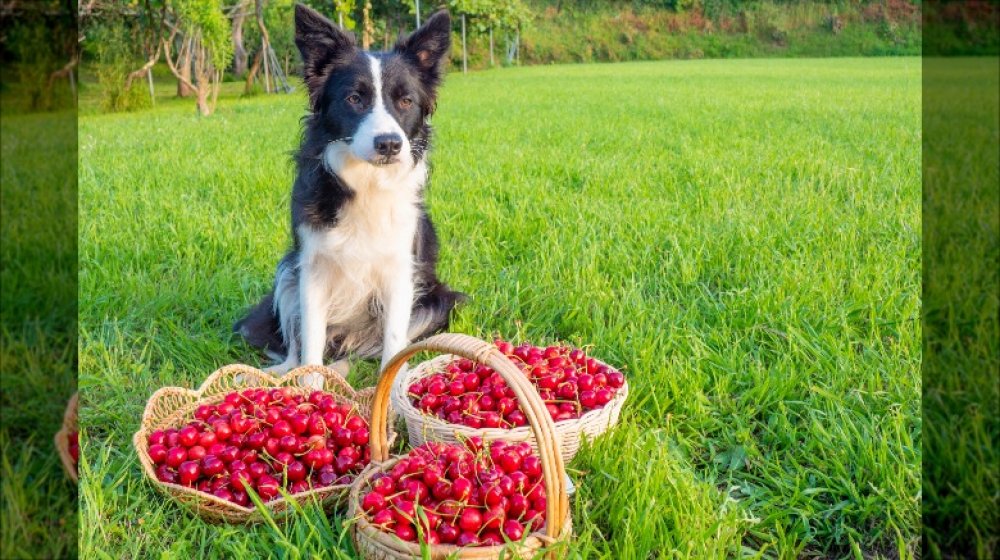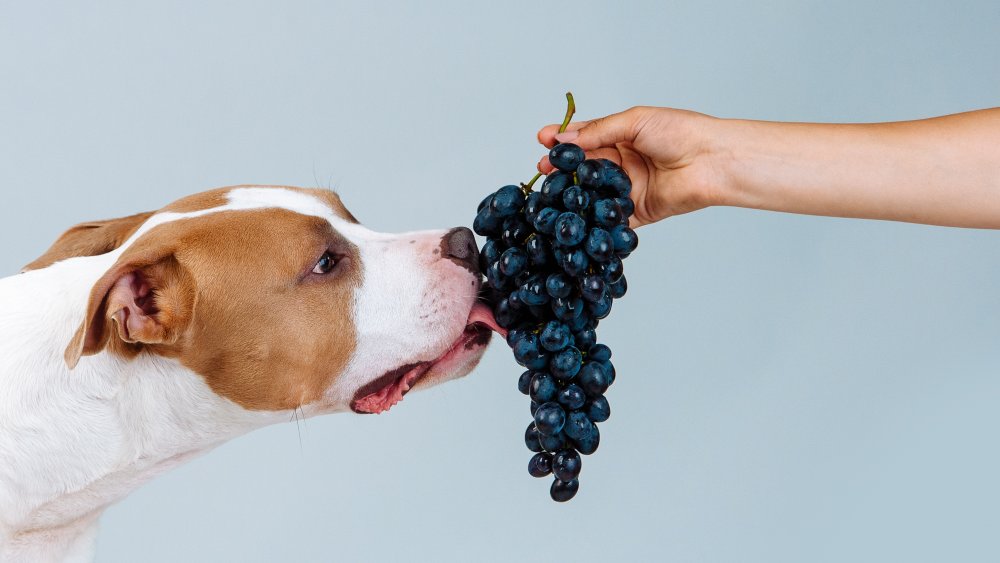The Most Poisonous Fruit For Dogs
Every responsible pet owner has to ask themselves some form of the question, "What are the different ways I could possibly poison my pet?" It's disturbing to think about, but crucial to avoiding tragic accidents. For instance, if you accidentally expose a fish to soap or lotion, you could end up flushing that fish — and a bunch of your tears down the toilet. And if you have a dog, you shouldn't let it eat that tear-soaked fish corpse floating in the toilet. Nobody wins in that scenario. Of course, if you want to keep your dog alive, you've got bigger fish to fry, like making sure your precious pooch doesn't chow down on human foods that its body can't handle.
Cyanide and unhappiness
One of the most obvious examples of toxic treats is chocolate, whose caffeine and theobromine are potentially fatal to canines. But even something healthy-sounding like fruit could spell the death of your dog. As natural-born carnivores, canines have no dietary need for fruit, according to the American Kennel Club. The occasional plant ovary is okay in some cases but some fruits are altogether deadly. For instance, cherries contain cyanide, which can inhibit a dog's breathing. In fact, cyanide can be a hidden hazard in fruits that are generally considered safe for dogs, such as peaches, pears, and mangoes. While the fruit itself doesn't pose a threat in these three cases, the seeds and pits contain cyanide and thus should be completely removed. Avocados are another no-no because they're packed with persin, a toxin which induces vomiting and diarrhea in dogs.
Grapes of wrath
While no toxic fruit belongs in a dog's mouth, the American Kennel Club makes a point of saying that "dogs should never eat grapes." Grapes, and their wrinkly counterparts, raisins, appear to be extremely toxic and may cause "acute sudden kidney failure" in dogs regardless of breed or age. Why this occurs is unclear. Further complicating matters is the fact that grapes affect individual dogs in dramatically different ways. A 2016 study in the journal Frontiers in Veterinary Science notes that some dogs become ill after consuming just a handful of grapes while others seem unfazed after eating a whole kilogram (2.2 pounds) of grapes. Moreover, scones, mince pies, fruit cakes, and other baked goods that contain grape products can poison your furry friend. Even the residue from grape pressing can do serious harm. A physician at Greenbrier Emergency Animal Hospital observed that some dogs that seem immune to grape toxicity initially have become ill after eating grapes or raisins in future instances. So even if your pet appears to have an iron stomach where these fruits are concerned, that tolerance might have an unknown expiration date.
Regardless of how many grapes your dog eats, it's crucial that they receive medical treatment within the first 72 hours, according to veterinarian Renee Very. In 2007, Very saved the life of a 16-pound border terrier named Casey that ate a one-and-a-half-ounce box of raisins, which isn't a lot, "even for a small dog." Despite being rushed to the vet within 18 hours of downing the raisins, Casey was already experiencing acute renal failure. She needed two days and two nights of emergency care. Five days after the incident, she still hadn't fully recovered.
Friends don't let man's best friend eat grapes
According to Pittsburgh Post-Gazette, between 2003 and 2004 the ASPCA Animal Poison Control Center received 140 calls from people whose dogs consumed grapes or raisins. Fifty of them fell ill, and seven died. In 2016, the center received 3,722 calls related to grape or raisin consumption. Based on the data from that year, the ASPCA determined that human foods such as grapes were the third most common toxins consumed by dogs.
While not every dog reacts the same way to consuming this fruit, PetMD provides a list of symptoms that may indicate grape or raisin poisoning. They include vomiting, diarrhea, abdominal pain, loss of appetite, seizures, weakness, trembling, a lack of urination, mouth ulcers, and bad breath. Your pet may also become comatose. Time is of the essence, so it's important to contact a professional immediately if something seems awry. Purina notes that your veterinarian may instruct you to induce vomiting. But if your dog seems unable to breath or exhibits symptoms of shock, Purina advises against inducing vomiting. The best way to protect your furry friend is to feed them foods specifically designed for canine consumption. So no matter how much your pooch tries to guilt you with their adorable puppy-dog eyes, resist the temptation to feed them chocolate-covered raisins like your life depends on it, because their life absolutely does.



